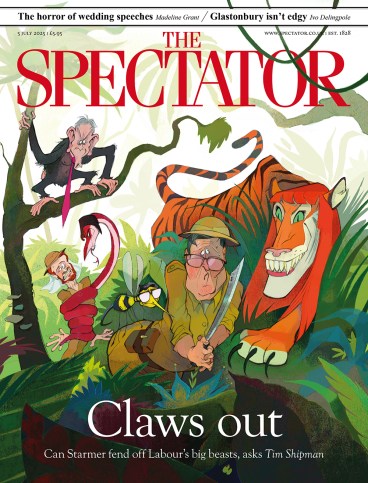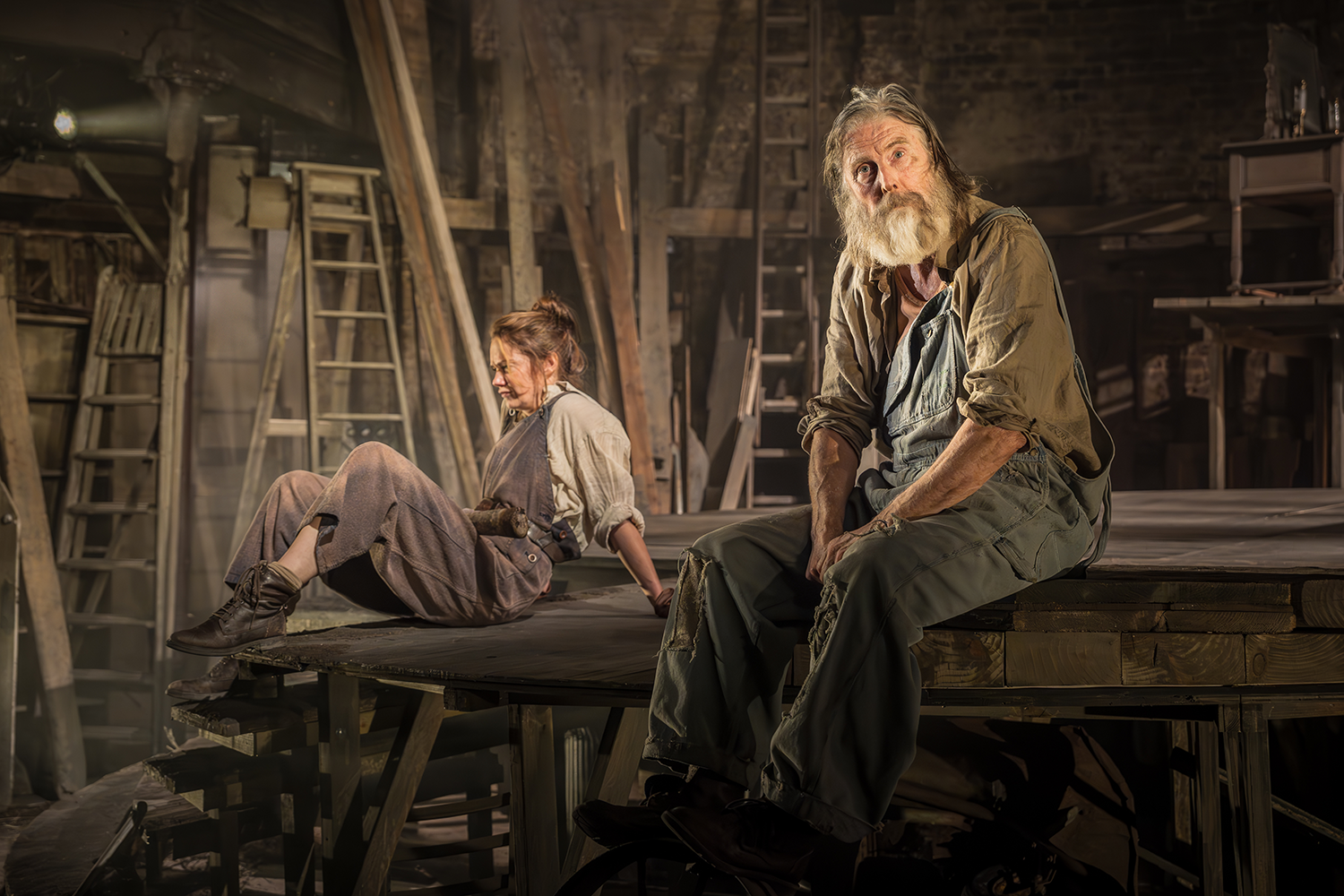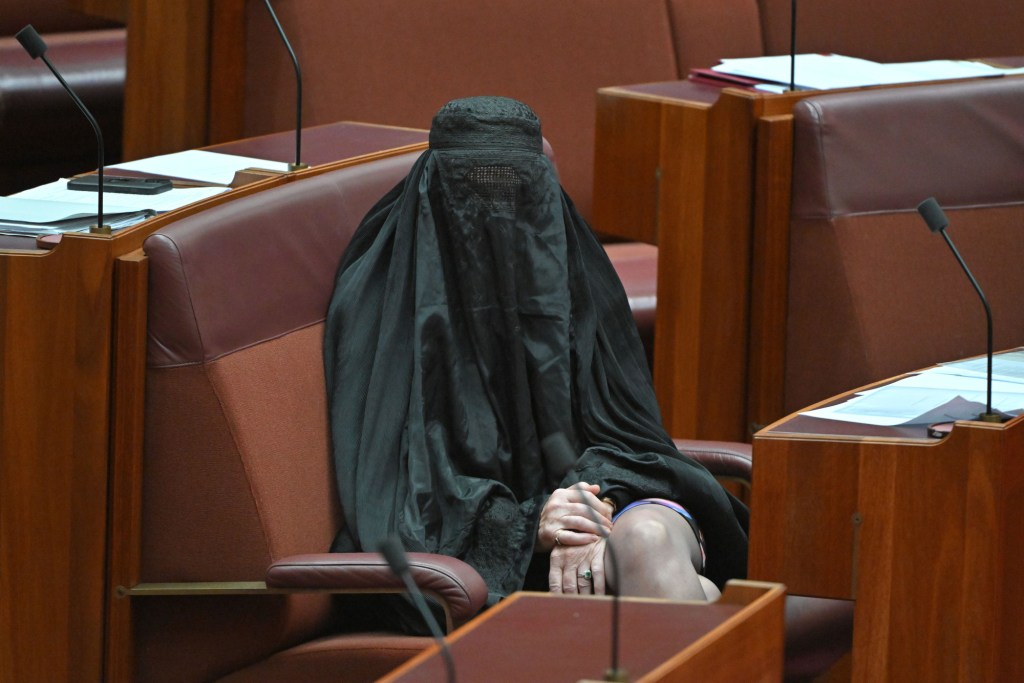
A Moon for the Misbegotten is a dream-like tragedy by Eugene O’Neill set on a barren farm in Connecticut. Phil Hogan and his daughter Josie have worked the rocky soil for 20 years and they’ve come up with a joke. ‘If cows could eat stones this would be a grand dairy farm.’ Phil is a coarse, shifty bully who starts the play by assaulting his neighbour and threatening to murder him. For some reason this crime goes unpunished and the incident isn’t mentioned again. Very odd.
The elements of this lop-sided story are clumsily arranged by O’Neill. His cold, narcissistic characters don’t make much sense and the subplot concerning a property deal is so complicated that it doesn’t affect the narrative one way or another.
The lead character, Josie (Ruth Wilson), feels like a collection of male virtues poured into a female vessel. She’s beautiful, wild, free, foul-mouthed, sexy and violent. And she’s a gifted seductress with numerous conquests to her name. Or is she? Later it transpires that Josie likes to spread rumours about her romantic exploits while preserving her virginity for Mr Right. Why would she do that? She’s a fantasy. Her suitor, James, based on the playwright’s brother, is a rich, pretentious alcoholic with an eating disorder and a death wish who likes to quote Rossetti and Keats.
Halfway through the play he decides to spend his fortune launching a Broadway career. On the eve of his departure for New York, he attempts to seduce Josie but she has other ideas. Encouraged by her scheming father, she intends to ply him with booze and persuade him to sign his fortune over to her while under the influence.
Episodes of Scooby-Doo have better plots than this. The play’s centrepiece is a torrid love scene between James and Josie, although it’s obvious that these two damaged weirdos are incapable of forming a relationship with anyone, let alone with each other. And their dialogue is so blunt and declarative that they might as well be characters in a radio play.
Close your eyes and you’ll be spared Tom Scutt’s eccentric set. To represent the Hogans’ farm, he dresses the playing area as an old timberyard full of unhinged doors, broken ladders, bits of plank and the remnants of a beaten-up piano. The deliberately clumsy lighting throws random shadows across the stage and, occasionally, across the faces of the cast. At the climax, the ‘misbegotten moon’ bathes the players in a sickly greenish glow which does nothing to cheer the atmosphere as James delivers a 30-minute screed of self-pity. Sozzled and uninhibited, he bangs on about the various disasters that blight his life. ‘The smuttiest-talking pig I ever met’ is his description of a former girlfriend. He recalls another old flame who ‘had a come-on smile as cold as a polar bear’s feet’.
The catalogue of woe never ends. Josie screams at him to shut up but he keeps adding more hassles to the list: his alcoholic gluttony, the ill health of his poor mother, his doomed passion for horse racing, and suddenly, clump, he falls unconscious. What a relief. Could this be a unique moment in the entire theatrical repertoire? A character who witters himself into a coma. The faults of this yarn can be summarised in a single word. Misanthropy. It’s about nasty people doing nasty things for nasty reasons. And it lasts three long hours.
The faults of this yarn can be summarised in a single word. Misanthropy
Showmanism by Dickie Beau is an illustrated podcast featuring clips from various theatre luminaries. The stage is furnished as a workshop full of props and costumes which Beau uses to dramatise the recorded anecdotes. He mimes every word of the script, including the coughs, pauses and hesitations of the contributors. An amazing feat. It must have taken him weeks of practice to get it right, but the effect is oddly unimpressive.
The best part is Ian McKellen’s recollection of playing Lear at West Yorkshire Playhouse and ‘drying’ on stage. He kept the script hidden in Prospero’s book of spells but a diligent stagehand had removed it before the performance. He had to ‘walk off stage in a Prospero kind of way’ to receive his line.
Other treats include the comic, Steve Nallon, explaining that David Cameron is impossible to impersonate because he has no essence to capture. Fiona Shaw sounds a little pretentious as she recalls playing the lead in Beckett’s Happy Days at Epidaurus.
Towards the end, Beau succumbs to the same temptation as he analyses the mechanics of the piece. He plays a recording of himself wondering if he should feature in his own show. After much rumination, he concludes that he deserves to be included, and he duly mimes to the sound of his own voice. Fair enough. But a few extra gags from McKellen might have been more welcome.









Comments